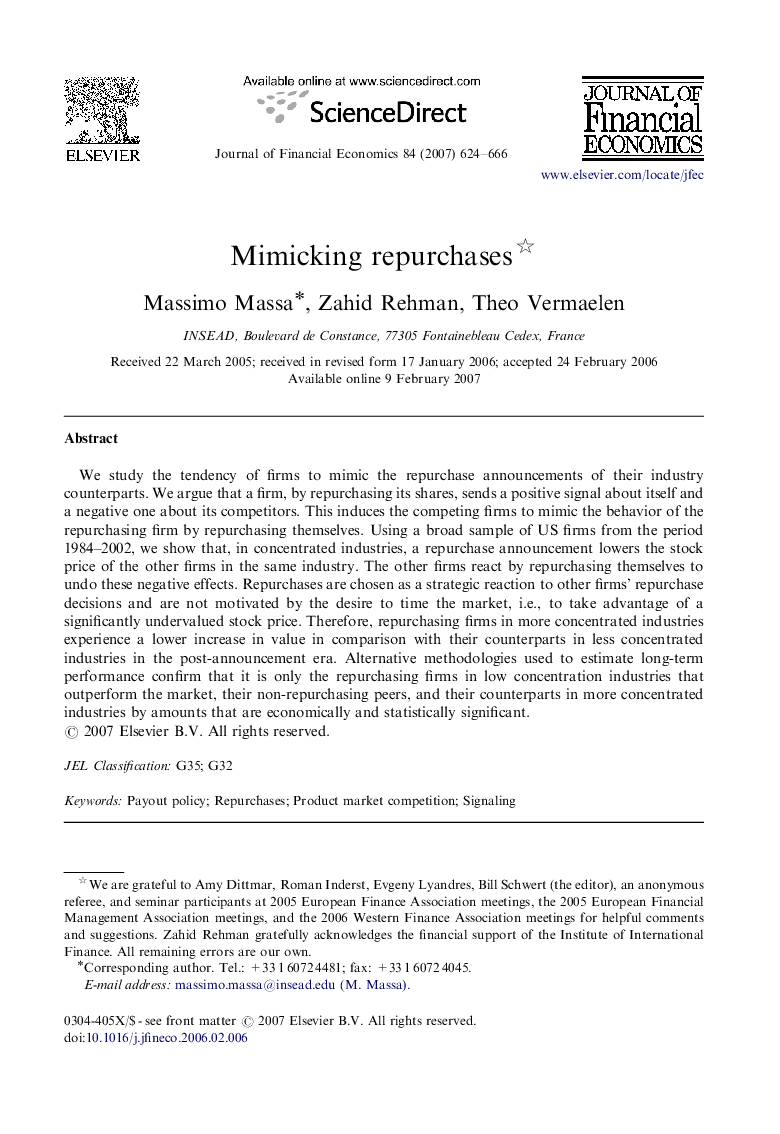| Article ID | Journal | Published Year | Pages | File Type |
|---|---|---|---|---|
| 960615 | Journal of Financial Economics | 2007 | 43 Pages |
We study the tendency of firms to mimic the repurchase announcements of their industry counterparts. We argue that a firm, by repurchasing its shares, sends a positive signal about itself and a negative one about its competitors. This induces the competing firms to mimic the behavior of the repurchasing firm by repurchasing themselves. Using a broad sample of US firms from the period 1984–2002, we show that, in concentrated industries, a repurchase announcement lowers the stock price of the other firms in the same industry. The other firms react by repurchasing themselves to undo these negative effects. Repurchases are chosen as a strategic reaction to other firms’ repurchase decisions and are not motivated by the desire to time the market, i.e., to take advantage of a significantly undervalued stock price. Therefore, repurchasing firms in more concentrated industries experience a lower increase in value in comparison with their counterparts in less concentrated industries in the post-announcement era. Alternative methodologies used to estimate long-term performance confirm that it is only the repurchasing firms in low concentration industries that outperform the market, their non-repurchasing peers, and their counterparts in more concentrated industries by amounts that are economically and statistically significant.
